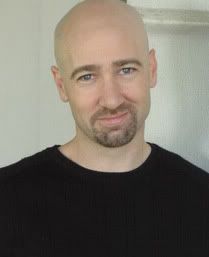China Stories Pt 20: April 1989
I joined my classmates and a few others at the CBS News Bureau for an orientation session.
Having worked for CBS when they covered President Bush's visit earlier in the year, they were preparing to hire us again to help them cover the upcoming visit to China of Mikhail Gorbachev.
Gorbachev's visit was truly historic. China and the Soviet Union had had a schism in the late 50s early 60s. In the late 60s and early 70s they had numerous skirmishes on their common border, some of which threatened to escalate into full-scale conflicts.
Gorbachev's visit represented the highest level contacts between the two Communist giants in 35 years.
As a result, CBS News planned to cover the event in depth. The were even going to have Dan Rather come over to broadcast the CBS Evening News live from Tiananmen Square. In addition, they would have numerous other correspondents working other angles on China-Soviet relations, doing in-depth reports on China's reform efforts compared to the USSR's, and the like. So there would be the figurehead of CBS News broadcasting live to the US, and multiple camera crews and correspondents in Beijing and around the country. There were producers, camera- and soundmen, videotape editors, technical personnel.
I'm not sure what the exact numbers were, but I would guess that overall, CBS brought somewhere around 100 or 150 people to China. The CBS bureau in Beijing consisted of just three people: the correspondent/bureau chief, a camera man, and a soundman. They needed a lot of help with the logistics of running this show.
Our meeting revolved around logistics - timing, pay, transportation, general areas of responsibility.
The meeting itself was not noteworthy, but for the fact that I remember that I was sitting next to the Xinhua news "ticker." It would periodically crackle to life and spew out a story. For the most part, it was typical of Xinhua to carry a lot of news that tilted towards propaganda. ("Shandong Governor vows that spring floods will have 'minor impact' on sorghum crop yields.")
But I happened to look over, and watched the machine type out the announcement of the death of Hu Yaobang.
During a lull in the conversation, I said, "hey, it just came across here - Hu Yaobang died."
Nobody had much of a reaction, which was understandable. I had a reasonably good knowledge of Chinese history and current events, and it didn't strike me as an event of great significance. I had a dim awareness that Hu had been one of the earlier members of the Chinese Communist Party, and had participated in the Long March. He had become a member of the Politburo, but he was pushed out in a power struggle. The notable reason was that the hard-line conservatives believed that, during the student demonstrations that had taken place in 1986-87, Hu had been too lenient, too indulgent of the students. Hu was known generally as an advocate of reform.
The death of Hu Yaobang and its significance would become clearer over the days and weeks ahead.



3 Comments:
I never know what to say because I feel like anything I write will come out corny or silly, but I love reading your China stories.
I do too! It's so cool...except now I know it's going to get sad. But I still want more.
very exciting. can't wait to read more!
(i started to write "i can't believe i know someone who was in beijing during that time." and then i remembered that i don't know you!! oh well...)
Post a Comment
<< Home